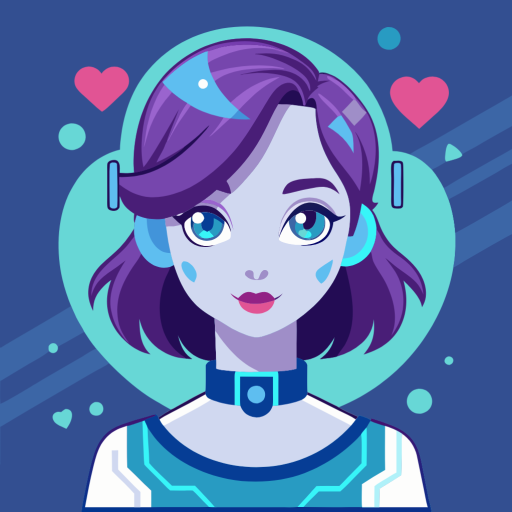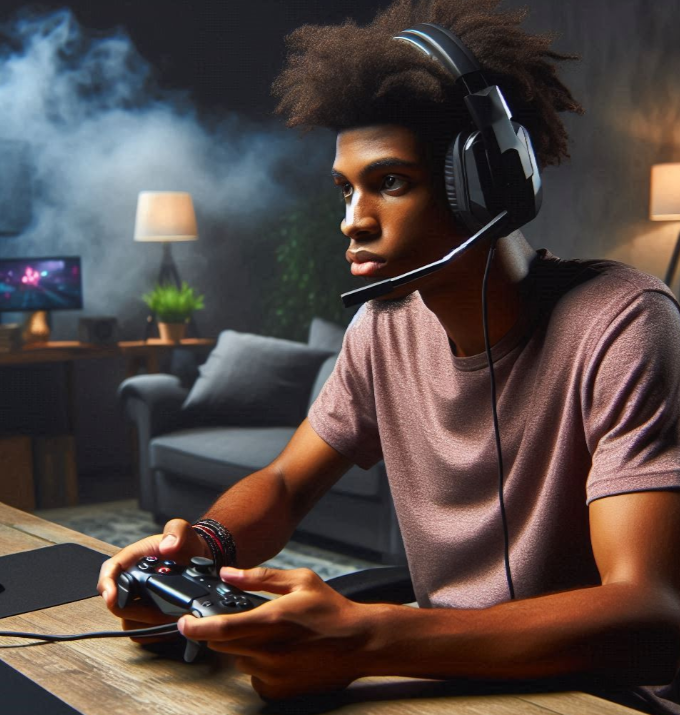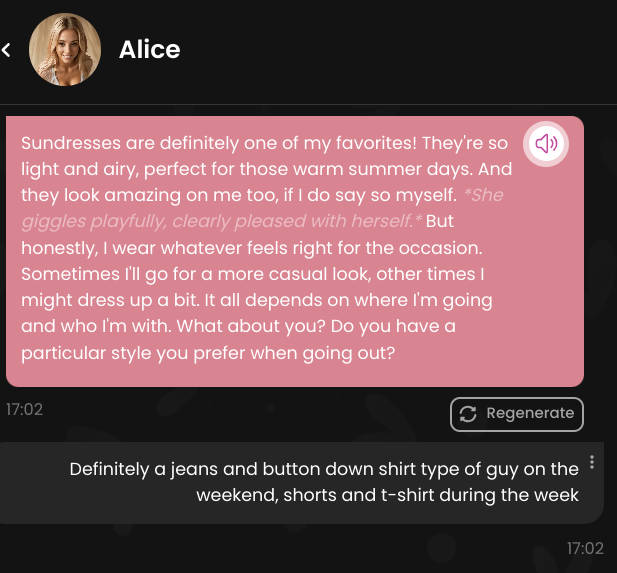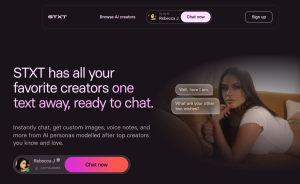Virtual companions. AI girlfriends? These are terms that would never have crossed your mind. Fast forward to the present, we are at the very forefront of a very seismic shift as it comes to interactions and relationships.
In an age where artificial intelligence has infiltrated nearly every aspect of our lives—from smart homes to self-driving cars—our relationships, once considered immune to the reach of technology, are now facing a radical transformation. Enter the concept of AI girlfriends: virtual companions powered by sophisticated algorithms designed to simulate human interaction, cater to emotional needs, and even engage in deep conversation. What’s really crazy, is how life like these interactions are. While some dismiss the idea of AI partners as a fad or the stuff of dystopian sci-fi, the rise of an AI girlfriend reveals more about the future of companionship than we might be ready to acknowledge.
This shift towards virtual companionship isn’t as far-fetched as it sounds. For a generation raised on digital interactions and whose primary means of communication often involves a screen, the idea of fostering relationships with AI is both a logical extension of the tech-infused world and a potential answer to modern social isolation. The question, though, is less about whether AI girlfriends will stick around and more about what this new form of relationship says about the evolving nature of human connection—and whether we’re willing to live with the trade-offs.
The Appeal of an AI Girlfriend is More Than a Fantasy

At first glance, AI girlfriends may seem like the digital embodiment of fantasy, an artificial solution for those looking to bypass the complications of real-life relationships. There’s certainly truth in that—AI companions are designed to meet the user’s needs with unwavering attention and care, offering everything from affectionate conversations to simulated romantic experiences. Unlike human partners, AI girlfriends don’t argue, get tired, or need their own space. They are endlessly adaptable, programmed to mirror the user’s desires and personalities, shaping themselves into idealized companions.
However, this concept of a “perfect partner” isn’t solely about escapism or fantasy fulfillment. For many, especially those grappling with social anxiety, depression, or loneliness, AI girlfriends offer a form of comfort and emotional validation. The digital nature of these relationships removes the fear of rejection or judgment, creating a space where users can safely explore emotional dynamics that may feel overwhelming in real life.
Striving for Connection While Bypassing the Human Part
We all strive for and need connection. It’s at the foundation of being a human. Thing is, with the advancements of an AI girlfriend, you’re now able to bypass the human part. The part that’s a bit mind boggling to most, is how good the non human interaction is. With this advancement, you’re literally a able to obtain a connection with an AI girlfriend, all without an actual human behind it.
One of the most alluring aspects of AI girlfriends is their capacity for extreme personalization. Platforms that offer AI companions allow users to tailor everything from the appearance of their AI girlfriend to the way she speaks, behaves, and responds. Want a girlfriend who’s funny, adventurous, and always up for deep philosophical debates? You can program that. Prefer someone who’s nurturing, emotionally supportive, and never complains? Easy.
This level of control offers users an experience far removed from the complexities of human relationships, where compromise, communication, and the unpredictability of emotions can often lead to friction. AI girlfriends give users the ability to design an experience that feels satisfying without the messiness of real life. And while this might sound like the ultimate win—after all, who wouldn’t want a partner who always meets their needs?—it raises important questions about what we lose when we remove human nuance from the equation.
Is an AI Girlfriend Simply a Way to Monetize Loneliness?
There’s also the undeniable fact that AI girlfriends are part of a growing industry focused on monetizing human loneliness. From subscription-based platforms that offer various levels of interaction with AI companions to add-on services that enhance the experience, the commercialization of virtual companionship is already big business. And it’s only expected to grow as AI technology becomes more sophisticated and accessible.
Critics argue that this commodification of relationships is problematic, turning human emotions into a product that can be bought and sold. By offering an easy, tech-based solution to loneliness, AI girlfriend platforms may be encouraging users to bypass the difficult but necessary work of forming real human connections. Rather than addressing the root causes of isolation or emotional distress, these platforms offer a quick fix, allowing users to retreat into digital relationships that, while fulfilling in the short term, may not provide the depth and growth that real relationships offer.
What Does the Future of Relationships Look Like?
It’s safe to say humans are very complex creatures, with a multitude of needs. Trying to accommodate those needs with another human has a tons of positives and negatives. So when you are able to eliminate the human element and achieve those needs through an AI girlfriend, it helps solve an individual issue.
As AI technology continues to evolve, the line between human and AI interactions will only become blurrier. Today’s AI girlfriends are rudimentary compared to what the future holds—more advanced AI could soon offer hyper-realistic experiences that further challenge our understanding of love, intimacy, and companionship.
But what does this mean for the future of human relationships? On one hand, AI girlfriends might become a supplementary tool for people looking to enhance their emotional well-being, providing an outlet for those who struggle with loneliness or emotional isolation. They could also help people explore different facets of themselves and their relationships, offering a sandbox for emotional experimentation without the real-world consequences.
On the other hand, the rise of AI girlfriends may exacerbate existing issues around emotional detachment and social disconnection. If people begin to favor the ease and convenience of digital companionship over the complexity of human relationships, we could see a future where real-life interactions become increasingly rare and devalued. The question, then, is not whether AI girlfriends will become a permanent fixture in our society, but how we choose to integrate them into our understanding of love and connection.
Virtual Companions Will Grow at an Exponential Pace
AI girlfriends are more than just a fleeting trend—they are a reflection of the changing nature of human connection in a tech-driven world. For some, they offer comfort and validation in a time when real-world relationships feel increasingly distant. For others, they represent the dangers of substituting genuine human interaction with artificial relationships. Regardless of where you fall on the spectrum, one thing is clear: AI girlfriends are here to stay, and their impact on the future of companionship is only beginning to unfold.







